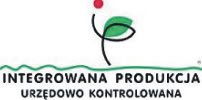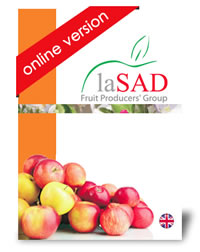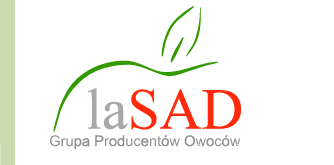Certificates


Table availability of fruit
Technology
Transportation fruit
Technology of additional products
Eight stages of quality control
Online catalog - about us

|
Series of certyfying procedures
In order to document a professional approach to the production and presale preparation of fruits La-sad sp. z o. o. group of fruits underwent a series of certyfying procedures. As of today we have been successful in passing certificates in the following areas: IPO, Globalgap, HACCP, BRC, IFS. Positive audits were carried out in our company by chain stores cooperating with our company, including Tesco.
IPO
Integrated production (IP) is a modern system of food quality, sustainably making use of technical and biological progress in cultivation, plant protection and fertilization, and paying a particular attention to the protection to the environment and human health.
Participation in the IP system allows to obtain a healthy crop production subject to certification and IP logo branded. The certificate is an official acknowledgment that the production was on the basis of the IP methodology. The use of IP methodologies ensures that the in the produced agricultural crops the permissible levels of pesticides, heavy metals, nitrates, other elements and harmful substances are not exceeded. At the same time sustainable environmental resources are used on the farm.
Globalgap
It is an independent, voluntary system to ensure food safety for primary agricultural production. GLOBALGAP Standard originally established under the name of EUREPGAP in 1997 as an initiative of the working group retailers affiliated to the organization EUREP (Euro-Retailer Produce Working Group) to develop a common procedure and a uniform standard for Good Agricultural Practices GAP (Good Agricultural Practice) and ensure food safety.
One of the main objectives of the standard plant production is to reduce to a minimum the use of fertilizers and plant protection, thereby to ensure food security in the market, to reduce the negative impact of agriculture on the environment and affect the long-term use of agricultural land.
HACCP
HACCP (English Hazard Analysis and Critical Control Points – a procedure aimed at ensuring the safety of food through the identification and assessment of the risk scale from the point of view of food health requirements and the risk of occurrence of risk during the course of all production processes and and food trade; this system also is intended to determine the methods of elimination or reduction of hazards and corrective actions\[1].
The HACCP is a systemic procedure which is used to identify and estimate the food hazard safety scale, from the point of view of its quality regarding health and the risk of occurrence of those hazards during the course of all production and distribution stages. It is also a system whose purpose is to determine the methods and control those hazards. The HACCP system provides the certainty that a production plant has done all for the safety of its products and the consumer, in relation to regulations, good production practice policies and the needs of the customers.
The ISO 22000:2005 standard targets all organisations whose operations involve the production, processing, storage, transport and sale of food.
BRC
The BRC standard is based on the HACCP rules and integrates the requirements present in the standards of the ISO, GMP and GHP standards, at the same time defining the detailed requirements which have to be met so as to ensure the safety and the required, replicable level of the ready product quality. An additional element which is given considerable attention is the compliance of the product with the food law. The first version of the BRC standard was publicised in Great Britain in 1998. BRC is a document which clearly formulated requirements imposed on food production plants providing foodstuffs under their own brand for British superstore chains. At present this standard is very well known not only in all of Europe but also on the other continents. The BRC standard is continually improved with regard to meeting the legal requirements referring to food safety and being up-to-date with new technological solutions, and currently there is used a fifth revision of the BRC Global Standard Food. This standard is preferred by trade chains in Great Britain.
IFS
It is a technical standard confirmed by the Confederation of German Trade Unions and the National Association of German Commercial Agencies and Distribution, approved by the Global Food Initiative. The first version of the International Good Standard was prepared in 2002 by German retail trade sector on the initiative of Metro AG, in collaboration with international retail trade associations. The initiative to draw up the IFS was established in order to improve food safety and strengthen consumer trust in this area. The IFS standard integrates requirements contained e.g. in ISO standards, in the Food Code, legal rules, good practice guidebooks (e.g. ones concerned with Good Hygienic Practice (GHP), Good Manufacturing Practice (GMP) and the Good Agricultural Practice (GAP). Good Laboratory Practice (GLP), as well as the current health-related issues. It is therefore a quintessence of the requirements which need to be met in order to ensure the safety and quality of the product.
TPPS
La-sad sp. z o.o. submitted to Tesco's assessment in 2013. The audit showed no significant inconsistencies, owing to which our company was evaluated as green.
It is a production standard required from all of our suppliers and sub-suppliers of food for the TESCO chain. The TFMS is concerned not only with food producers, but also food product packaging plants. The TFMS standard is as of today one of the most exacting food safety standards in the world.
The TFMS is a series of specific requirements (just as the BRC standard) which need to be fulfiled by suppliers, compared to the BRC (the Global Standard for Food Safety developed by the British Retail Consortium) the TESCO Food Production Standard introduces numerous details and expands the requirements e.g. with ethical principles for workers.
The purpose of developing the TFMS standard was primarily the ensuring of the safety of products made for TESCO, meeting the legal requirements but also the suppliers following ethical principles with respect to their employees.
|
